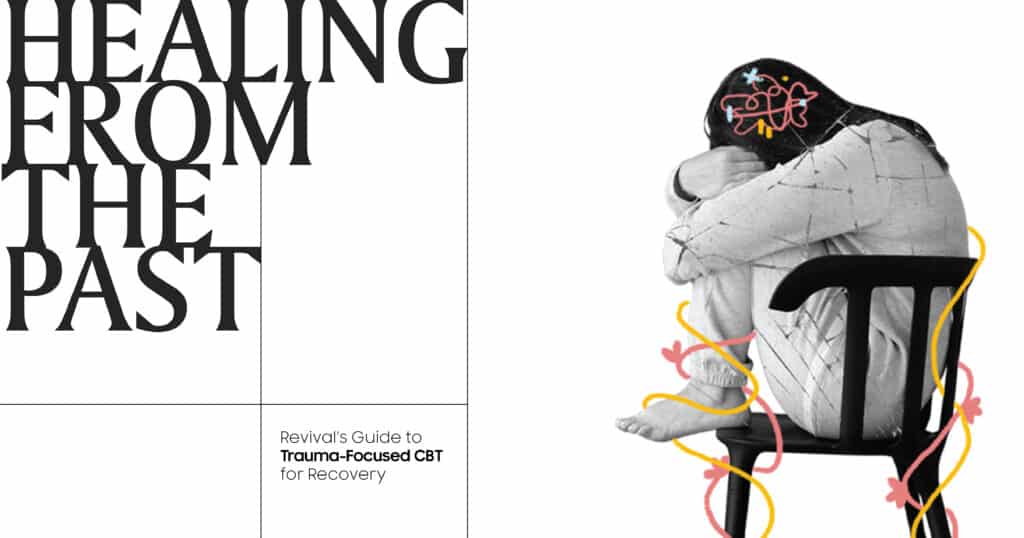
Recovering from the impact of past trauma requires a specialized and evidence-based approach. Trauma-Focused Cognitive Behavioral Therapy (TF-CBT) offers individuals a structured and empowering framework for healing and recovery. This guide provides a comprehensive overview of TF-CBT, delving into its core principles and techniques. Through cognitive restructuring, exposure therapy, and skill-building exercises, this guide illuminates the path towards processing trauma, managing distressing symptoms, and reclaiming a sense of safety and well-being.
Understanding Trauma and the Role of TF-CBT
1.1 Defining Trauma and its Consequences
- Gain a comprehensive understanding of trauma, including its various forms and the profound impact it can have on individuals’ lives.
- Explore common symptoms and consequences of trauma, such as anxiety, depression, hypervigilance, and relational difficulties.
1.2 Introduction to Trauma-Focused Cognitive-Behavioral Therapy
- Discover the theoretical foundations and core components of TF-CBT.
- Understand how TF-CBT addresses the unique needs of trauma survivors and promotes healing through a blend of cognitive, behavioral, and emotional strategies.
Phases of TF-CBT: Navigating the Journey to Recovery
Phase 1: Psychoeducation and Establishing Safety
- Learn about the crucial role of psychoeducation in helping individuals understand the impact of trauma and develop a foundation of safety.
- Explore practical techniques for teaching coping skills, promoting emotional regulation, and establishing a therapeutic alliance.
Phase 2: Trauma Narrative and Processing
- Understand the significance of creating a trauma narrative to aid in the processing and integration of traumatic memories.
- Discover approaches and exercises for safely exploring and sharing the trauma narrative while fostering cognitive and emotional processing.
Phase 3: Skill-Building and Mastery
- Explore a range of coping skills and strategies to help individuals effectively manage distressing symptoms and develop resilience.
- Learn techniques for emotion regulation, relaxation, problem-solving, and interpersonal effectiveness to enhance overall well-being and coping abilities.
Phase 4: Consolidation and Integration
- Discover how to empower individuals to consolidate their progress, identify strengths, and incorporate new learning into their everyday lives.
- Explore strategies for maintaining gains, addressing setbacks, and planning for future challenges to ensure long-term recovery.
Key Techniques and Interventions in TF-CBT
3.1 Cognitive Restructuring
- Learn how to identify and challenge negative thoughts and cognitive distortions associated with trauma.
- Discover cognitive restructuring techniques to promote more adaptive thinking patterns and a sense of personal control.
3.2 Exposure-Based Interventions
- Explore gradual exposure techniques aimed at reducing trauma-related avoidance and fear.
- Learn how to implement systematic desensitization, imaginal exposure, and in vivo exposure exercises to facilitate processing and habituation of distress.
3.3 Skills for Emotional Regulation and Distress Tolerance
- Discover a range of skills that aid in managing overwhelming emotions and distress.
- Explore techniques such as grounding, relaxation exercises, mindfulness, and self-soothing strategies to enhance emotional regulation.
Implementing TF-CBT in Practice and Beyond
4.1 Cultural Considerations in TF-CBT
- Understand the importance of cultural sensitivity and adapting TF-CBT to align with diverse beliefs, traditions, and cultural backgrounds.
- Explore ways to incorporate cultural values, rituals, and community resources to enhance treatment effectiveness.
4.2 Collaboration with Support Systems
- Recognize the significance of involving caregivers, family members, and other support systems in the TF-CBT process.
- Learn effective strategies for collaborating with schools, healthcare providers, and community resources to create a comprehensive support network.
4.3 Self-Care for TF-CBT Practitioners
- Acknowledge the emotional demands of working with trauma survivors and the importance of self-care for practitioners.
- Explore strategies for maintaining professional boundaries, seeking supervision, and engaging in self-care practices to prevent burnout.
Transforming the Trauma Narrative into a Journey of Healing
Trauma-Focused Cognitive Behavioral Therapy (TF-CBT) holds immense potential for individuals seeking healing and recovery from past traumas. This evidence-based therapeutic approach combines elements of cognitive-behavioral therapy with trauma-sensitive interventions, offering a comprehensive framework to address the complex aftermath of traumatic experiences. TF-CBT is particularly effective in helping individuals, including children and adolescents, process and make sense of their traumatic memories, fostering a sense of empowerment and resilience. By integrating cognitive restructuring, psychoeducation, and gradual exposure techniques, TF-CBT assists clients in developing healthier coping mechanisms and reframing distorted beliefs associated with their trauma. Furthermore, the incorporation of mindfulness and relaxation strategies enhances emotional regulation, providing individuals with practical tools to manage the impact of trauma on their daily lives. As therapists guide clients through this structured and collaborative process, a foundation for post-traumatic growth is laid, enabling survivors to reclaim their lives and build a more positive and hopeful future. The tailored nature of TF-CBT acknowledges the uniqueness of each individual’s trauma experience, making it a versatile and compassionate approach that aligns with the diverse needs of those on their journey to recovery.




